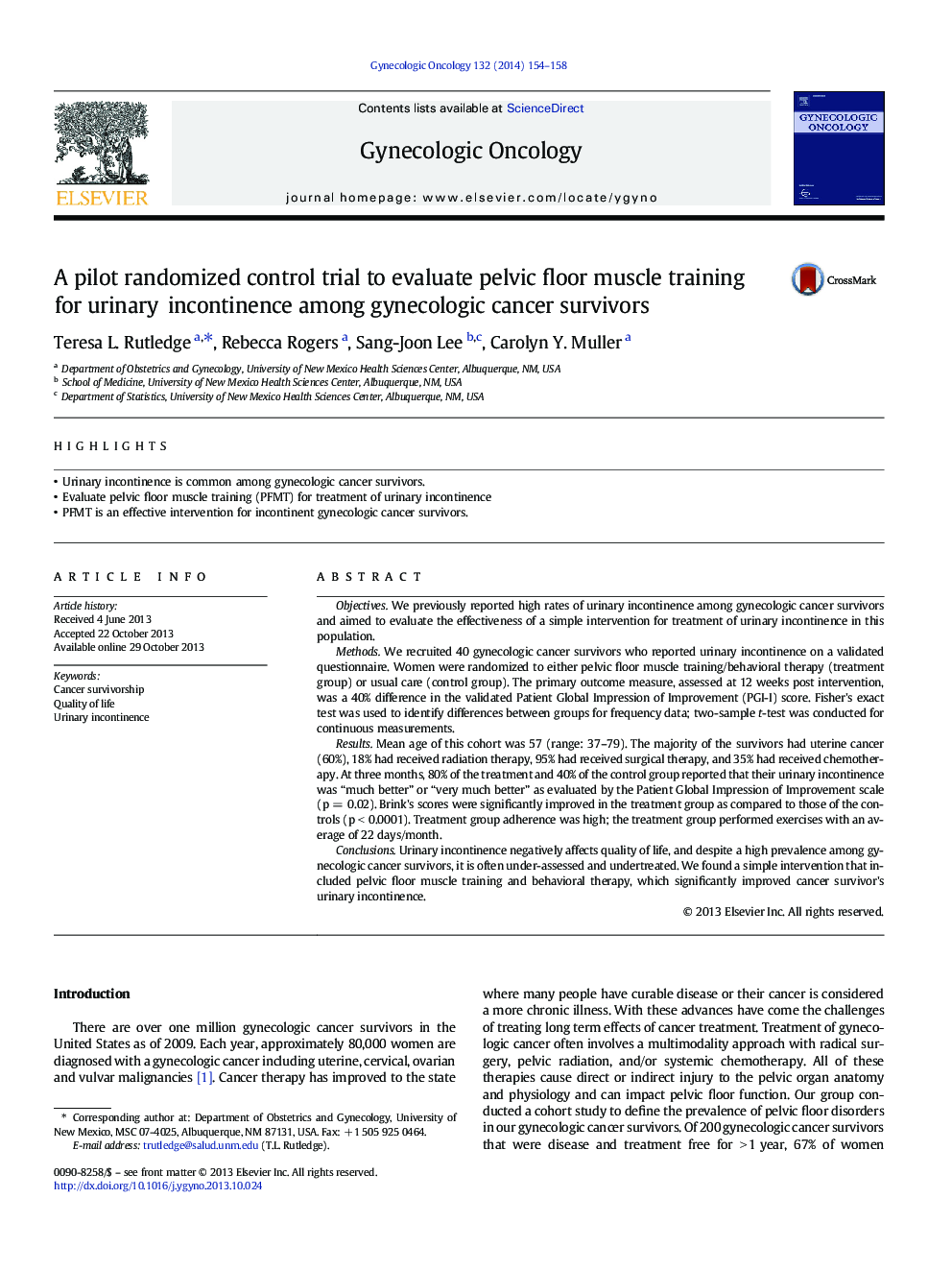| کد مقاله | کد نشریه | سال انتشار | مقاله انگلیسی | نسخه تمام متن |
|---|---|---|---|---|
| 3942821 | 1254042 | 2014 | 5 صفحه PDF | دانلود رایگان |
• Urinary incontinence is common among gynecologic cancer survivors.
• Evaluate pelvic floor muscle training (PFMT) for treatment of urinary incontinence
• PFMT is an effective intervention for incontinent gynecologic cancer survivors.
ObjectivesWe previously reported high rates of urinary incontinence among gynecologic cancer survivors and aimed to evaluate the effectiveness of a simple intervention for treatment of urinary incontinence in this population.MethodsWe recruited 40 gynecologic cancer survivors who reported urinary incontinence on a validated questionnaire. Women were randomized to either pelvic floor muscle training/behavioral therapy (treatment group) or usual care (control group). The primary outcome measure, assessed at 12 weeks post intervention, was a 40% difference in the validated Patient Global Impression of Improvement (PGI-I) score. Fisher's exact test was used to identify differences between groups for frequency data; two-sample t-test was conducted for continuous measurements.ResultsMean age of this cohort was 57 (range: 37–79). The majority of the survivors had uterine cancer (60%), 18% had received radiation therapy, 95% had received surgical therapy, and 35% had received chemotherapy. At three months, 80% of the treatment and 40% of the control group reported that their urinary incontinence was “much better” or “very much better” as evaluated by the Patient Global Impression of Improvement scale (p = 0.02). Brink's scores were significantly improved in the treatment group as compared to those of the controls (p < 0.0001). Treatment group adherence was high; the treatment group performed exercises with an average of 22 days/month.ConclusionsUrinary incontinence negatively affects quality of life, and despite a high prevalence among gynecologic cancer survivors, it is often under-assessed and undertreated. We found a simple intervention that included pelvic floor muscle training and behavioral therapy, which significantly improved cancer survivor's urinary incontinence.
Journal: Gynecologic Oncology - Volume 132, Issue 1, January 2014, Pages 154–158
